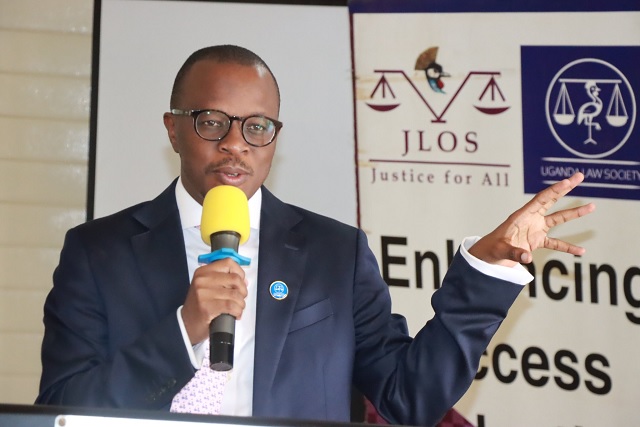
Kampala, Uganda | THE INDEPENDENT | The Uganda Law Society has petitioned the Constitutional Court challenging the amended Computer Misuse Act, 2022.
On September 8th, 2022, Parliament passed the Computer Misuse (Amendment) Act, 2022 and on October 14th, 2022, President Museveni assented to it. The Act was later published in the Uganda Gazette thereby giving it a force of law for its enforcers to start operationalizing it.
In their petition filed on Monday, the Uganda Law Society argues that the law is unconstitutional as it muzzles free speech, expression, and media rights and that the process leading to its enactment was marred by procedural impropriety.
According to the petitioners, Parliament passed the Computer Misuse (Amendment) Act, 2022 without ascertaining quorum of the House before voting on each clause and before passing the entire Bill by the Committee of the whole House, and such breached the parliamentary rules of the procedure, making it unconstitutional.
“That, however, the procedure adopted by the Parliament in passing the Computer Misuse (Amendment) Act 2022 fell below the Standard that set out in the Constitution with respect to the pre-requisite quorum required for the passing of laws and as such the process of passing of the said Computer Misuse Amendment Act 2022 was flawed,” noted the petitioner.
ULS adds that section 26D which talks about social media usage and section 30 repealing section 30(3) were added at the committee stage while section 27A barred a convicted offender from standing for public office for a period of years was deleted by the committee without effective consultation of the public.
They also argue that several provisions of the Act contravene some provisions of the Constitution. For instance, they refer to section 12(1) of the Act which prohibits unauthorized sharing, accessing, or intercepting of personal data or programs, voice or video recording, and sharing of personal information which they say contravenes with article 8A which talks about National Interest, Article 28 on fair hearing and Article 29 which provides for freedom of expression, among other provisions.
The Law Society also notes that section 26B of the Act which talks about unsolicited information, 26C on malicious information, and 26D on misuse of social media all contravene Article 28 on fair hearing, 42 which talks about the administration of justice and article 43 which clearly lays down limitations to the enjoyment of the freedom of expression.
The petition which is supported by the affidavit of the President of the Uganda Law Society, Bernard Oundo, notes that apart from the law having been passed without following the proper procedures, the Act introduces provisions that curtail the enjoyment of the freedom of expression enshrined in article 29 of the Constitution, criminalizes conduct which is protected under the same article of the Constitution and also criminalizes conduct from which a large number of Ugandans derive their livelihoods.
ULS wants the Constitutional Court to declare that the Parliament passed the bill without the prerequisite quorum and that the section which criminalizes sharing of unsolicited information is unconstitutional and against the freedom of expression. They also want the court to declare that the provisions censor and restrain the free flow of information, ideas, and entertainment and that they are a danger to academic, artistic, political, and civil freedoms among others.
In 2019, ULS challenged the constitutionality of Sections 24 and 25 of the Computer Misuse Act, which talks about offensive communication and cyber harassment.
Last month, a group of 14 petitioners comprising nine civil society organizations and individuals also petitioned the Constitutional Court, challenging the Act on grounds that it violates the freedom of speech and expression.
*****
URN
 The Independent Uganda: You get the Truth we Pay the Price
The Independent Uganda: You get the Truth we Pay the Price


